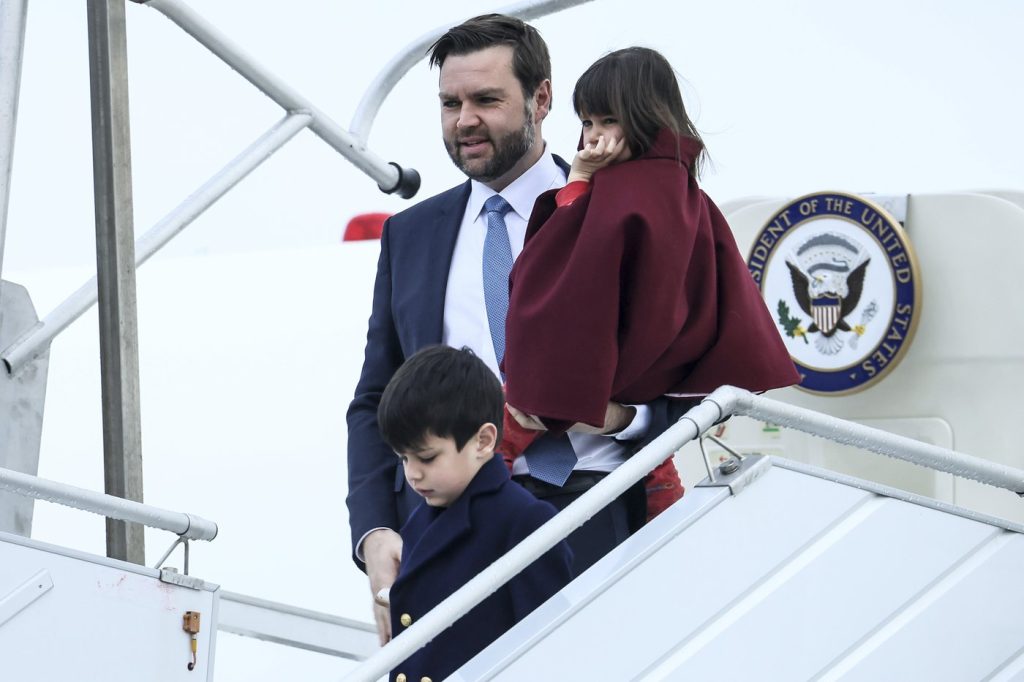Major world leaders convened for an AI summit in Paris, marking a significant event in the rapidly evolving technology landscape. With diplomatic discussions anticipated to be challenging, the summit includes heads of state, government officials, CEOs, and scientists from around 100 countries, taking place over two days starting Monday, February 10, 2025.
High-ranking participants at the summit include U.S. Vice President JD Vance, making his first international trip since assuming office, alongside Chinese Vice Premier Zhang Guoqing. French President Emmanuel Macron emphasized the importance of seizing the opportunity presented by AI to enhance the quality of life, education, work, and healthcare, stating, “AI will enable us to live better, learn better, work better, care better."
Vance's presence allows European leaders to meet him for the first time. At just 40 years old, he was chosen by Donald Trump as his running mate while serving as Ohio’s junior senator. He traveled to Paris with his family, receiving a warm welcome from Manuel Valls, France's minister for Overseas France, and the U.S. Embassy’s chargé d'affaires, David McCawley.
During the summit, Vice President Vance will have a working lunch with President Macron, where discussions will focus on significant global issues, including Ukraine and the Middle East. Vance has echoed Trump's questioning of U.S. financial support for Ukraine and the strategy surrounding Russian President Vladimir Putin. Trump had previously pledged to resolve the conflict in Ukraine within six months of his presidency.
After the Paris summit, Vance is expected to attend the Munich Security Conference, where he may meet Ukrainian President Volodymyr Zelenskyy. Leaders across Europe are closely monitoring Trump’s recent remarks regarding potential tariffs on the European Union, as well as controversial suggestions related to geopolitical issues, including an idea for Palestinians to evacuate Gaza post-conflict in Israel.
The summit, attracting key players such as Google, Microsoft, and OpenAI, aims to promote AI advancements across various sectors like health, education, environment, and culture. A newly announced global public-private partnership called “Current AI” is planned to facilitate large-scale initiatives addressing the public interest. Linda Griffin, Mozilla’s vice president of public policy, stated that the summit represents "a norm-setting moment" for the international discourse surrounding AI.
Analysis from Nick Reiners, a senior geotechnology analyst at Eurasia Group, highlights the potential for a shift in AI governance as stakeholders aim to decentralize power from a select few private entities and prioritize public interests in AI development. However, uncertainties loom regarding whether the U.S. will back such initiatives.
French organizers of the event hope to announce substantial investment in AI within Europe, with Macron revealing plans for private investments totaling €109 billion (approximately $113 billion) in upcoming years, likening it to Trump’s Stargate AI data centers project.
Additionally, India’s Prime Minister Narendra Modi is co-hosting the summit alongside Macron to engage more global actors in AI development and to diminish the competitive landscape that pits the U.S. against China. India's foreign secretary, Vikram Misri, underscored the importance of equitable AI access to prevent amplifying existing digital divides globally.
Finally, Macron and Modi plan to visit the south of France to inaugurate a new Indian consulate in Marseille and tour the ITER nuclear research facility. France has solidified its role as a significant defense ally for India, with negotiations ongoing regarding the purchase of 26 Rafale fighter jets and three Scorpene submarines, indicating the possibility of a finalized deal in the coming weeks.










